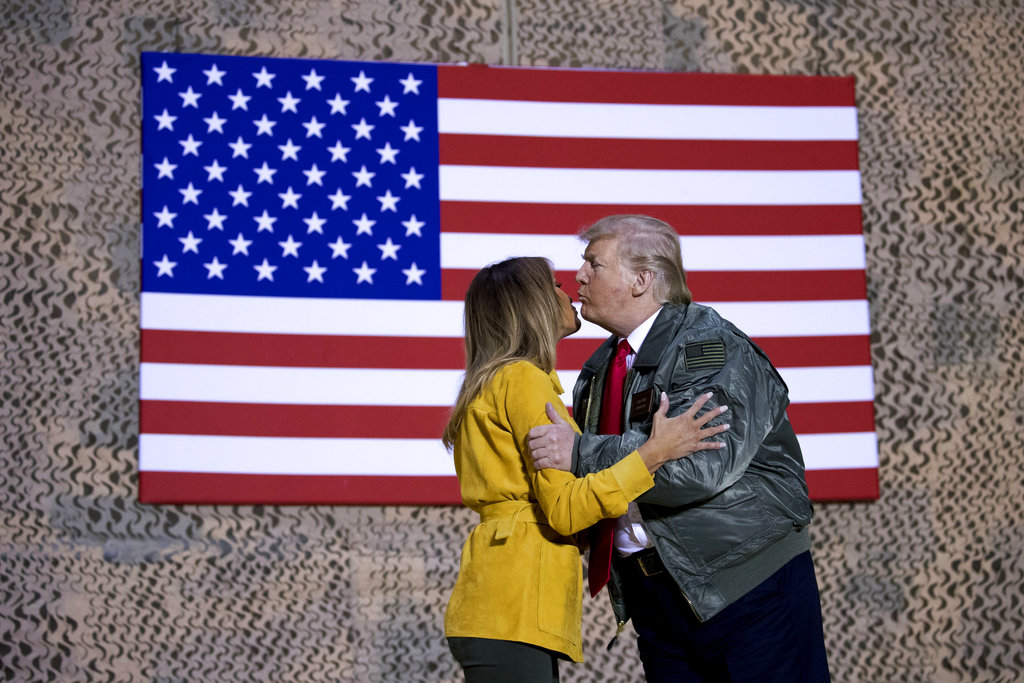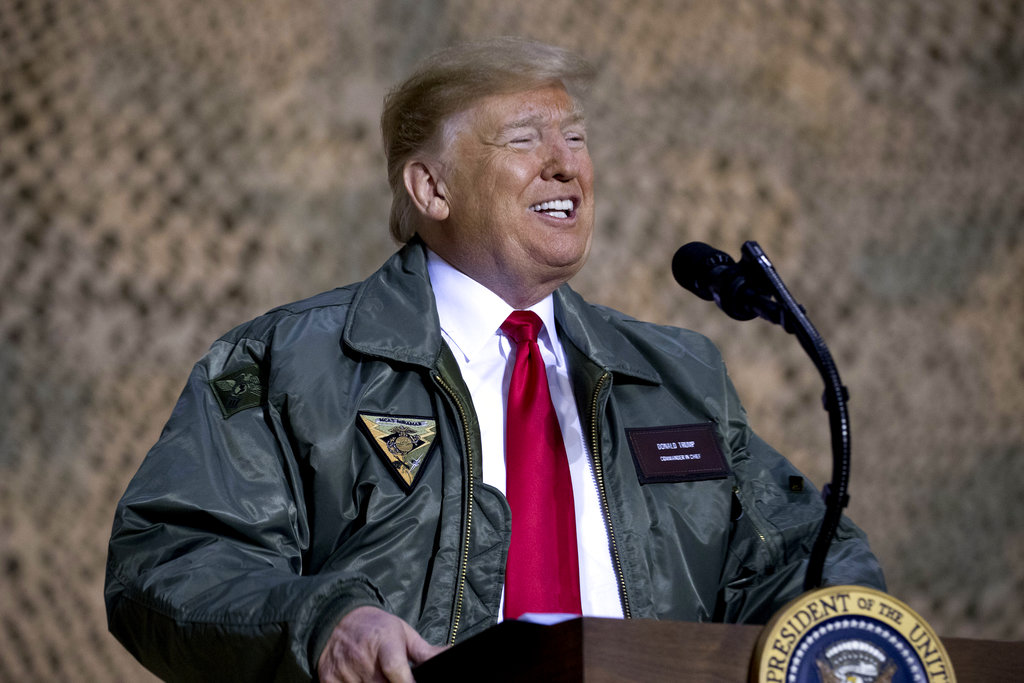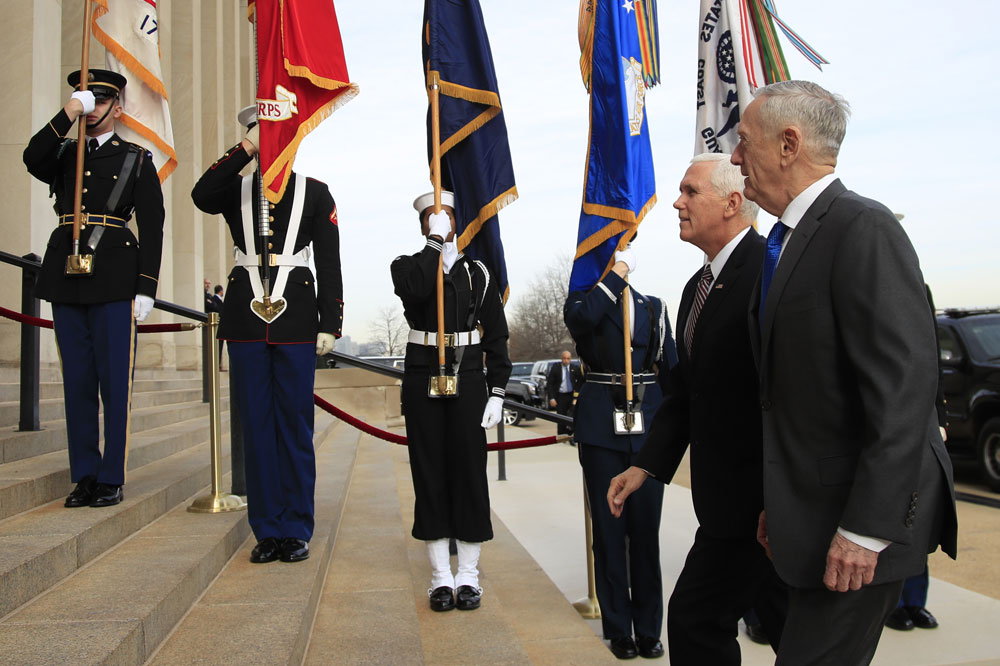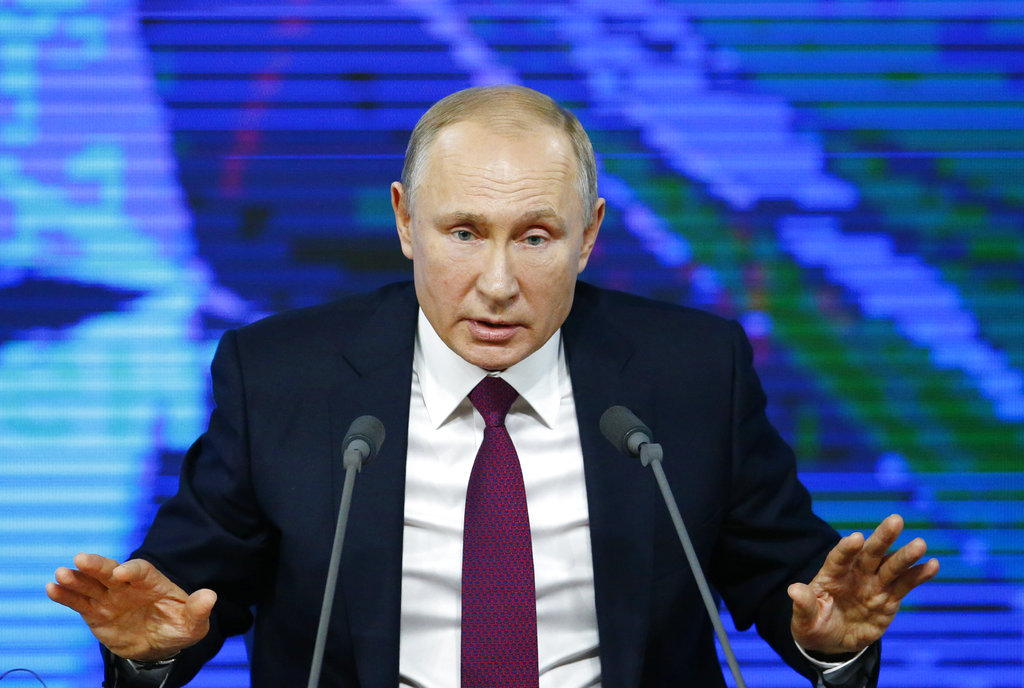President Donald Trump has returned to the US from an unannounced trip to Iraq, his first visit to a danger zone abroad.
Air Force One landed at Joint Base Andrews, Maryland, at 5.12 am.
Trump had been hearing from critics that it was past time for him to go abroad and see troops in harm's way. With secrecy typical of such presidential visits, the President's plane flew into Iraq on Wednesday with lights out and shutters drawn, coming overnight from Washington.
Trump stopped in Germany on his way back to greet troops at a US air base.
The US President once said it wasn't 'overly necessary' for him to visit troops in danger zones abroad. But he did just that, slipping into Iraq in darkness for a visit of three-plus hours.
Trump defended his decision to pull forces from neighbouring Syria, declaring of Islamic State militants: 'We've knocked them out. We've knocked them silly.'
His appraisal is at odds with that of military officials, aides and allies who consider IS a diminished but deadly force. His defence secretary and envoy to the anti-IS coalition quit after Trump blindsided much of the national security establishment with his call.

We're no longer the suckers, folks. We're respected again as a nation.
Donald Trump
Trump told his audience in Iraq that the decision to withdraw the roughly 2,000 troops from Syria illustrated his quest to put 'America first'.
'We're no longer the suckers, folks,' Trump said at al-Asad Air Base, about or 60 km west of Baghdad. 'We're respected again as a nation.'
He did not meet Iraqi officials while there but spoke on the phone with Iraqi Prime Minister Adel Abdul-Mahdi. The visit appeared to inflame sensitivities about the continued presence of US forces in Iraq as the two major blocs in the Iraqi parliament condemned the trip, likening it to a violation of Iraqi sovereignty.
The air base where Trump spoke is about 250 km from Hajin, a Syrian town near the Iraqi border where Kurdish fighters are still battling IS extremists. Trump has said IS militants have been eradicated, but the latest estimate is that IS still holds about 100 square km of territory in that region of Syria, although fighters also fled the area and are in hiding in other pockets of the country.
Defence secretary Jim Mattis was supposed to continue leading the Pentagon until late February, but Trump moved up his exit and announced that Patrick Shanahan, deputy defence secretary, would take the job on January 1. Trump said he was in 'no rush' to nominate a new defence chief.
'Everybody and his uncle wants that position,' Trump told reporters traveling with him. 'And also, by the way, everybody and her aunt, just so I won't be criticised.'

Donald Trump kisses First Lady Melania Trump at Al Asad Air Base, Iraq, on Wednesday. AP
Critics said the US exit from Syria, the latest in Trump's increasingly isolationist-style foreign policy, would provide an opening for IS to regroup, give Iran a green light to expand its influence in the region and leave US-backed Kurdish forces vulnerable to attacks from Turkey.
'I made it clear from the beginning that our mission in Syria was to strip ISIS of its military strongholds,' said Trump, who wore an olive green bomber-style jacket as chants of 'USA! USA!' greeted him and speakers blared Lee Greenwood's song God Bless the USA.
'We'll be watching ISIS very closely,' said Trump, who was joined by first lady Melania Trump, but no members of his Cabinet or lawmakers. 'We'll be watching them very, very closely, the remnants of ISIS.'
Trump also said he had no plans to withdraw the 5,200 US forces in Iraq. That's down from about 170,000 in 2007 at the height of the surge of US forces to combat sectarian violence unleashed by the US-led invasion to topple dictator Saddam Hussein.
Abdul-Mahdi's office said 'differences in points of view over the arrangements' prevented the two from meeting but they discussed security issues and Trump's order to withdraw US troops from Syria over the phone. Abdul-Mahdi's office also did not say whether he had accepted an invitation to the White House. But Trump press secretary Sarah Huckabee Sanders told reporters on the flight back that the Iraqi leader had agreed to come.
Trump said that after US troops in Syria return home, Iraq could still be used to stage attacks on IS militants.
'We can use this as a base if we wanted to do something in Syria,' he said. 'If we see something happening with ISIS that we don't like, we can hit them so fast and so hard' that they 'really won't know what the hell happened.'
He promised a 'strong, deliberate and orderly withdrawal' of forces from Syria












